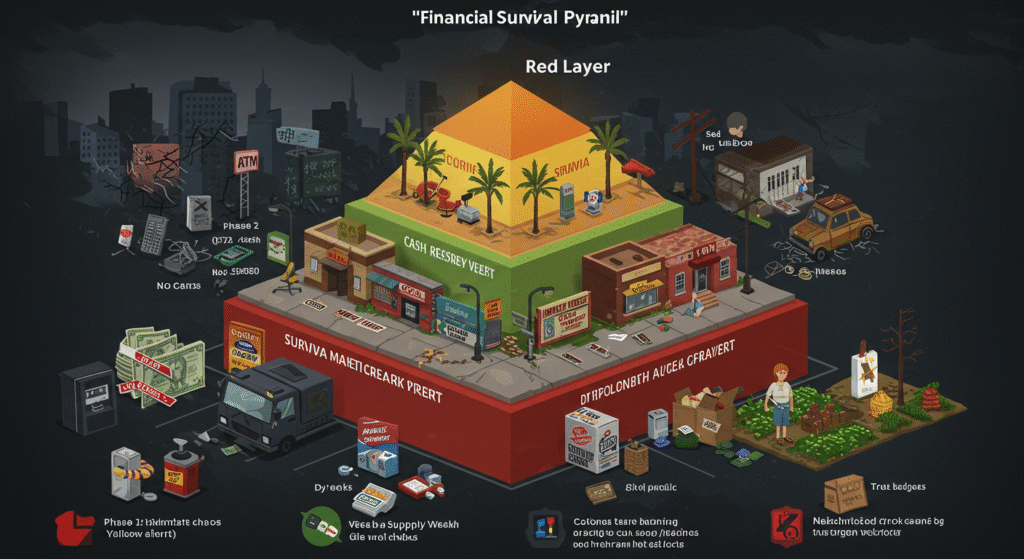When Money Fails: Preparing for Economic Emergencies
Our digital financial world feels secure—until it isn’t. Through direct experience in multiple disasters, I’ve observed how quickly modern systems crumble when catastrophe hits. These insights reveal what truly matters when everyday commerce becomes a distant memory.
Hard Truths from Crisis Situations
- Electronic payments vanish instantly
- Paper currency outlasts digital alternatives
- Social connections surpass bank balances
- Standard investments frequently become useless
Financial Disruption Timeline
Phase 1: Initial Breakdown (First 3 Days)
Lessons from Hurricane Helene:
- No power means no digital transactions
- Cash machines empty immediately
- Only physical money buys critical supplies
Essential Readiness:
- $300-500 in mixed small bills
- Backup payment cards with modest funds
- Retail gift cards for basic purchases
Phase 2: Ongoing Crisis (Week 1-4)
During sustained emergencies:
- Distribution networks falter
- Local money loses purchasing power
- Temporary trading systems appear
Practical Steps:
- Reserve cash for monthly expenses
- Keep desirable trade items (medicines, tools)
- Establish local supply relationships
Phase 3: Complete Collapse (Month+)
Documented patterns show:
- Official currencies may fail entirely
- Typical wealth becomes inaccessible
- Real-world abilities determine survival
Lasting Solutions:
- Develop barterable skills (repairs, nursing)
- Create mutual aid networks
- Learn traditional self-reliance methods

Evaluating Financial Options in Crises
Cash: The Most Reliable Medium
Advantages:
- Universally accepted
- Requires no infrastructure
- Easily divisible
Storage Tips:
- Keep in fireproof/waterproof containers
- Distribute in multiple locations
- Use small denominations
Electronic Payments: High Failure Risk
Limitations:
- Depending on the functioning infrastructure
- Subject to account freezes
- Often inaccessible during emergencies
Precious Metals: Problematic in Practice
Challenges:
- Difficult to authenticate
- Hard to divide for small purchases
- Makes holders targets for theft
Cryptocurrencies: Digital Limitations
Reality Check:
- Require internet access
- Need willing trading partners
- Value can fluctuate wildly
Building True Financial Resilience
Essential Preparations
- Cash Reserves: 1-2 months’ expenses in small bills
- Barter Goods: Useful, non-perishable items
- Community Ties: Relationships with neighbors and local businesses
- Practical Skills: Abilities others will value
Common Mistakes to Avoid
- Over-reliance on digital systems
- Storing wealth in single forms
- Neglecting local networks
- Focusing only on financial assets
Actionable Steps for Preparedness
- Start Small: Begin with $500 emergency cash fund.
- Diversify Storage: Use multiple secure locations.
- Build Skills: Learn basic repair and medical techniques.
- Connect Locally: Develop relationships with neighbors.
- Practice Scenarios: Test your preparedness periodically
Remember: In times of crisis, flexibility and adaptability matter more than any single financial asset. The most prepared individuals combine prudent financial measures with strong community connections and practical knowledge.
Share this content:



